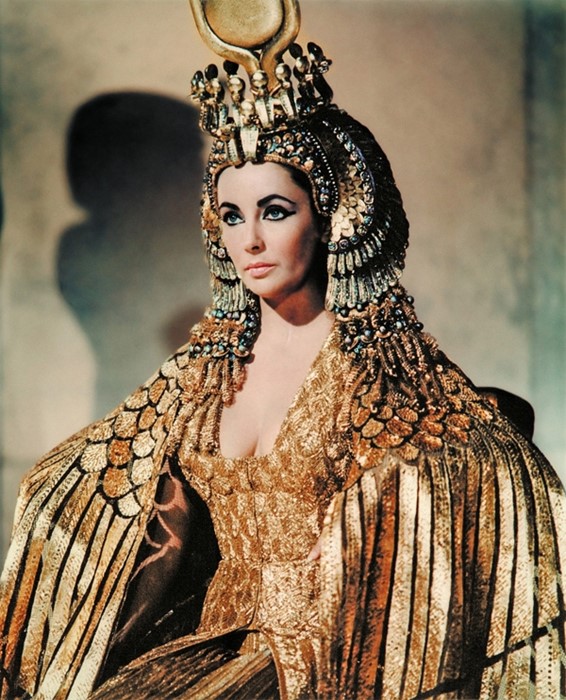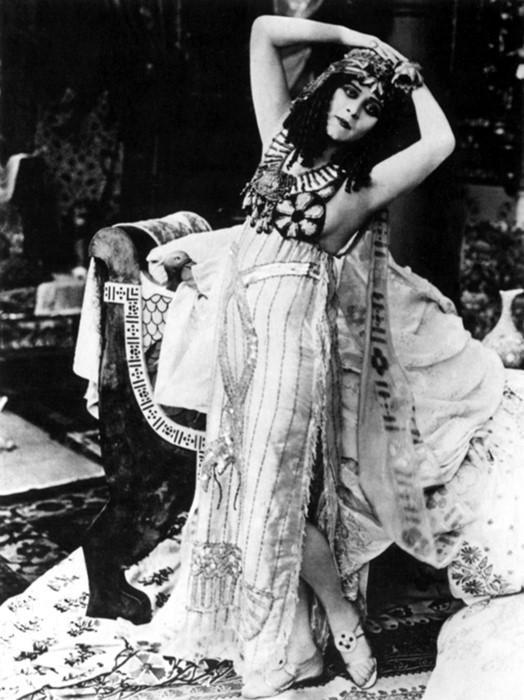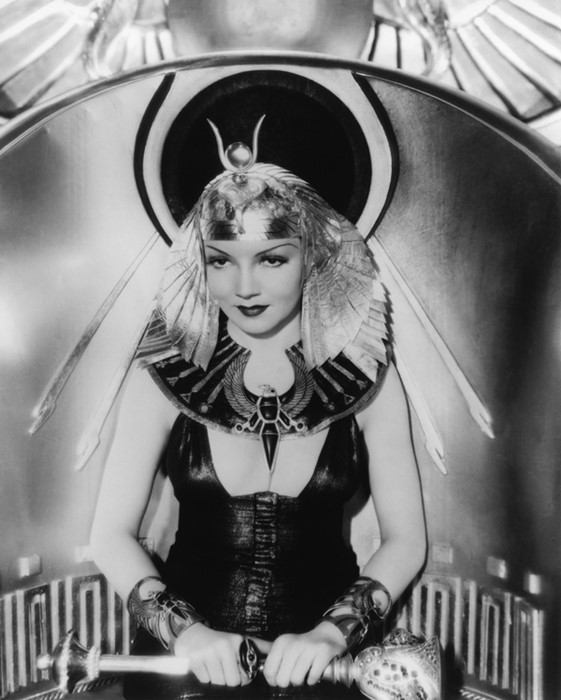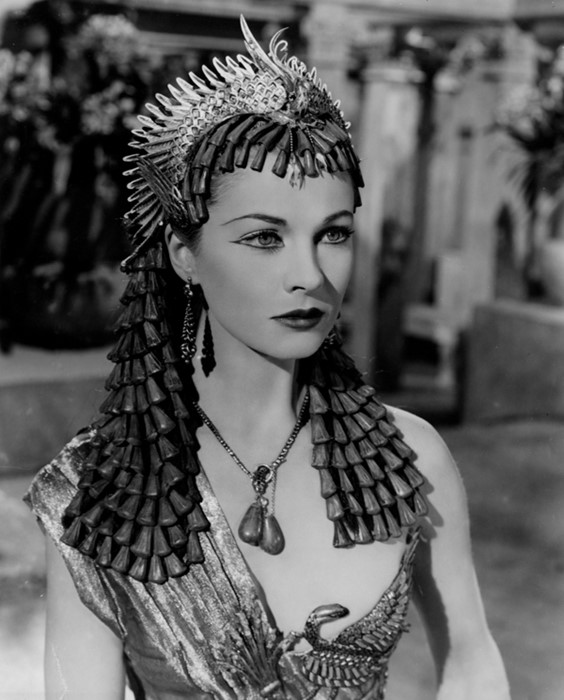AnOther takes a look at the best Cleopatras from film history
With the prolific, varied, and romanticised depictions that have graced both stage and screen, it is easy to forget that Cleopatra and Mark Antony were once living, breathing humans. Their perennial intrigue surpasses that of the average historical figure; their tumultuous relationship straying into the realms of myth and Hollywood-fuelled legend. The story continues to compel, as represented by the myriad screen adaptations and the enduring popularity of Shakespeare's Antony and Cleopatra, currently showing at London's Globe theatre.
A contemporary audience is well-versed in the legend of Cleopatra: exotic and tantalising, she is the paradigm of alluring femininity. Yet, the fact is, Cleopatra was so much more than heavy kohl and a famous nose. Fiercely intelligent and highly politicised, she surpassed all other branches of the Ptolemaic dynasty; being the sole member of the Greek-speaking line of Pharaohs to learn Egyptian. In what was unequivocally a man’s world, Cleopatra supervened the Roman Empire’s regime and brought two of its most notorious figureheads to their knees.
Actresses have flocked to the role for generations, eager for the opportunity to pay deference to the notorious ‘Queen of the Nile’. Here are some of our favourites.
Vivien Leigh, in Caesar and Cleopatra (1945)
Adapted from George Bernard Shaw's 1901 play of the same name, Caesar and Cleopatra was a foreshadow of contemporary ‘coming of age’ rom-coms; less concerned with historical accuracy as with satire. As such, in a unique and eccentric interpretation of the Egyptian ruler, Leigh played her Cleopatra as an impetuous teen. On the one hand, she was vacillating and stubborn, on the other, whimsical and naive. Despite being the most expensive production of the time – earning an Academy Award nomination for Best Art Direction – the film was a relative failure at the box office, bringing the director, Gabriel Pascal’s, career to a premature end.

Elizabeth Taylor, in Cleopatra (1963)
Since starring as the title role in the 1963 blockbuster, Elizabeth Taylor’s name has become synonymous with Cleopatra. Alongside Mark Antony, played by her off-screen inamorata, Richard Burton, Taylor’s Cleopatra is sophisticated, charming and demure. The similarity between the two women did not go unnoticed. In 1962, Time Magazine referred to Taylor as, “a fatal beauty, an all-consuming man-eater, the Cleopatra of the twentieth century”. Yet, Taylor herself refuted the claim that Cleopatra’s only facets were that of shallow attraction. In an interview at the time, she remarked: “To me, Cleopatra was more like a tigress than a sex kitten, even at nineteen, when she first met Caesar and had been queen for only two years. She was even more mature in her passions and political feelings by the time she met Antony.”
"To me, Cleopatra was more like a tigress than a sex kitten" — Elizabeth Taylor

Theda Bara, in Cleopatra (1917)
Elusive star of the silent screen, Theda Bara, is widely considered to be the inaugural sex symbol of cinema. With her risqué, suggestive costumes, Bara’s Cleopatra was a femme fatale; seductive and tempestuous. While only around twenty seconds still exist of the original film, its reputation in Hollywood history is notorious. In what was the first major publicity stunt of cinema, Fox Studio’s PR gurus – Al Selig and John Goldfrap – concocted a story about an ancient prophecy discovered in a Theban temple, that foretold Bara’s rise to stardom. It read: “I, Rhames, priest of Set, tell you this: She shall seem a snake to most men; she shall lead them to sin, and to their destruction. Yet she shall not be so. She shall be good and virtuous, and kind of heart; but she shall not seem so to most men. For she shall not be that which she appears. She shall be called…” after which followed the Greek letter ‘Theta’.

Claudette Colbert, in Cleopatra (1934)
Released only weeks before the famed Hays Office crackdown on Hollywood’s more lascivious productions, Cecil B. DeMille's production of Cleopatra was as alluring and salacious as the Egyptian Queen’s own reputation. In the title role was the screen siren of the time, Claudette Colbert, a seductive paean to the most iconic woman in history, who portrayed her as the master of her sexual appeal. This was the first moment that Cleopatra had been given a voice on the silver-screen, and paved the way for the articulate, eloquent portrayals that came to epitomise her reputation today.
Antony and Cleopatra is at Shakespeare's Globe until August 24.
Text by Abigail Gurney-Read
